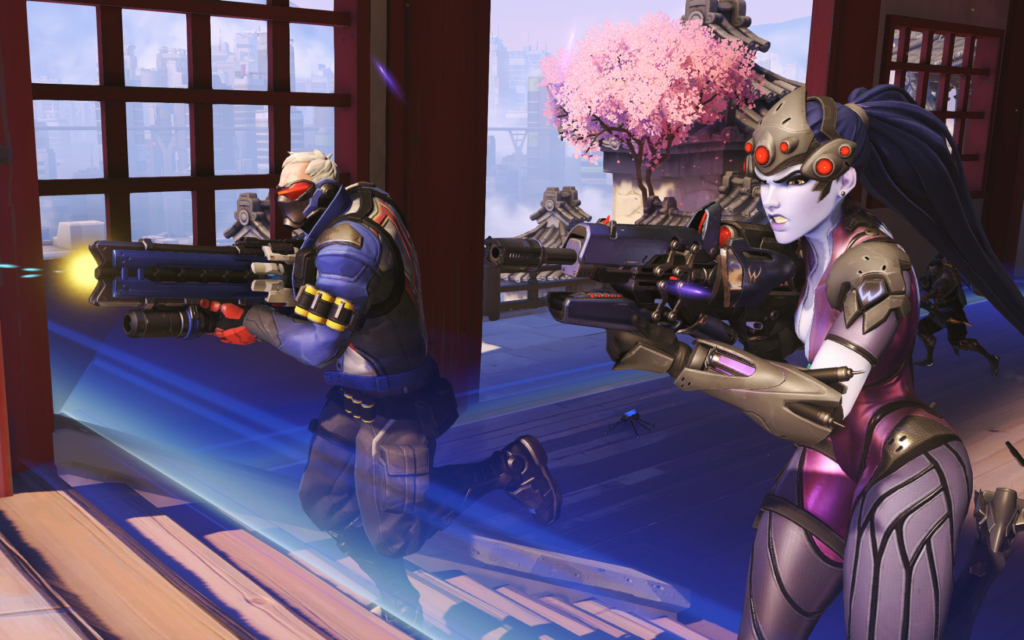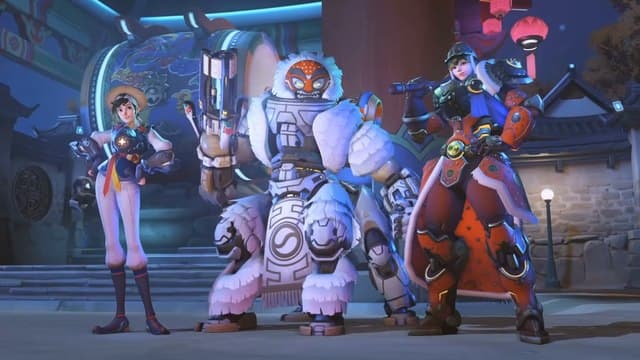Folks, there are nights when I play Overwatch that I just want to play as the grumpy, gay granddad that is Soldier: 76 without it being a big to do. But I haven’t been able to do that lately and it’s really starting to take its toll on my relationship with the game.
Since I started playing Overwatch earlier this year, I’ve clocked in around 300 hours into Blizzard’s team-based shooter, but in the past month I’ve spent more time trying to find matches than I’ve spent participating in them since the addition of Role Lock.
Role Lock puts a new set of restrictions on Overwatch’s six-player team setup that requires each team to have even spread of heroes from each role. This means every team has two tanks, two healers, and two damage dealers. This way you’re never without someone who can help keep your team alive through defense or healing, and in theory you won’t have to deal with players unhappy about being pigeon-holed into any given role because they queued up for it before the match started.
This set up makes team composition painless in a way it never was before. Much of my early days of playing Overwatch involved picking Soldier: 76 then having to switch when I realized no one was going to play a support or tank character and someone had to step up and babysit a team of five damage heroes. Now I can go into every match knowing we’ll have the tanks and healers we need whether I’m stepping up to do it myself or not.

The result is a version of Overwatch that perfectly coalesced into the ideal I’d been imagining for the game. Now every time the hero select screen comes up I don’t have to look and see what no one’s picking, have my nagging conscious get the best of me, then switch to a different role. Everyone has a designated responsibility at the outset, so teams are balanced and, in theory, games can be more productive than ever before.
But that same set up, one that lets people queue up for exactly what they want to play, isn’t evenly spread across all three roles, and that means the most popular one, Damage, has ludicrously high queue times compared to Tank and Support, and the result is that being a Damage main is kind of a miserable experience under this new rule set.
I play Overwatch on PlayStation 4, and the average queue time for a Tank or Support role for me has usually been anywhere from less than a minute to around two or three on a busy night. This means that I can easily slip in a few games as the shield-deploying Orisa or the combat medic Baptiste at my leisure, but playing as Soldier: 76, the character I’ve invested the most time in since I started playing can take significantly longer. More often than not a queue for a Damage role is, at minimum, around six minutes long, and in some extreme cases I’ve nearly waited 10 minutes for just one match.

What this basically amounts to is a lot of my time spent playing Overwatch is spent either playing a Tank or Support, which I’m more than glad to do, but having to neglect a role and character I’d previously devoted most of my time playing to, or spend large chunks of any given night watching the queue timer tick away when I could be doing anything else with my time. This time suck is exasperated in Competitive Mode, where if someone leaves a match before a set amount of time has passed, the entire game ends and we’re all sent back to the home screen to queue up again. I’ve had several experiences where I’ve queued for Damage, just for multiple games in a row to end because someone dropped out, eating up anywhere from 10 to 30 minutes of my time without getting to play at all.
While some would argue the solution would be for Blizzard to undo the new system, the spirit of Role Lock is something worth aspiring to. It eliminates the need for spats with teammates about team composition, everyone should have an idea of what they want to play when they arrive at the character select screen, and ultimately it does help balance out teams and matches as long as everyone involved is working together to accomplish a goal. But as long as there are players unwilling to try out other roles and make these lines a little smaller for everyone involved, Damage mains will be spending a lot more time watching Overwatch’s main menu than they will moving payloads, capturing points, and unleashing their ultimate abilities on the other team.


